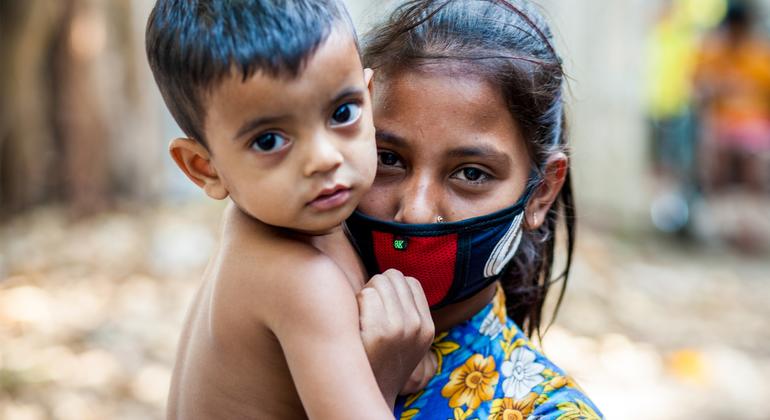In September 2021, the World Health Organization (WHO) set an ambitious global target. The UN health agency called for 70 per cent of the global population to be vaccinated by mid-2022.
At that point, just over three per cent of people in low-income countries had been vaccinated with at least one dose, compared to 60.18 per cent in high-income countries.
Six months on, the world is nowhere near reaching that target.
The overall number of vaccines administered has risen dramatically, but so has the inequality of the distribution: of the 10.7 billion doses given out worldwide, only one per cent have been administered in low-income countries.
This means that 2.8 billion people around the world are still waiting to get their first shot.
Vaccine inequity jeopardizes the safety of everyone, and contributes for growing inequalities between – and within – countries. Not only does this state of affairs risk prolonging the pandemic, but the lack of equity has many other impacts, slowing the economic recovery of entire countries, global labour markets, public debt payments, and countries’ ability to invest in other priorities.
Recovery harder than ever
Two years on from the start of the COVID-19 pandemic, poorer countries are finding it harder than ever to recover economically, labour markets are suffering, public debt remains stubbornly high, and there is little left in the coffers to invest in other priorities.
New analysis by UNDP shows that most of the vulnerable countries are found in Sub-Saharan Africa, including Burundi, the Democratic Republic of the Congo, and Chad, where less than one percent of the populations are fully vaccinated. Outside of Africa, Haiti and Yemen are still to reach two percent coverage.
The studies show that, if low-income countries had the same vaccination rate as high-income countries in September last year (around 54 per cent) they would have increased their GDP by US$16.27 billion in 2021.
The countries calculated to have lost most potential income during the pandemic, due to vaccine inequity, are Ethiopia, the Democratic Republic of the Congo and Uganda.
This lost income could have been used to address other pressing development challenge in line with the Sustainable Development Goals (SDGs) that make up the UN’s 2030 Agenda for Sustainable Development, the organization’s blueprint for a future that is fair for people and the planet.
In South Sudan, for example, the costs associated with COVID-19 vaccinations could have covered all social assistance programmes and education expenditure in the country, whilst in Burundi, the costs could have provided healthcare for some 4.7 million people.
Whilst the protracted lockdowns put in place worldwide hurt workers everywhere, those in developing countries were, again, disproportionately affected. Richer countries softened the blow by boosting economic support to both formal and informal workers, while in low-income countries, support declined between 2020 and 2021.
Where do we go from here?
Urgent access to vaccines and financing – such as the grants and concessions proposed by the International Monetary Fund (IMF) – is, according to the analysis, essential for the poorest countries, alongside support that is tailored to the situation faced by each individual nation.
Many, for example, have benefited from vaccination campaigns undertaken by international organizations, and this experience can inform the way that COVID-19 vaccinations are conducted.
And the Global Dashboard for Vaccine Equity, developed by UNDP, the World Health Organization (WHO) and the University of Oxford, is helping researchers and policy-makers to run their own analysis, and develop the programs that can most effectively benefit their citizens, and go some way to addressing global inequality.
If vaccine equity is not dealt with soon, the consequences could be grave. As the UN human rights chief, Michelle Bachelet, said on 10 March, greater cooperation between countries is needed to stop the pandemic fast, whilst delayed vaccination could lead to escalated societal tensions and violence, and a lost decade for development.





